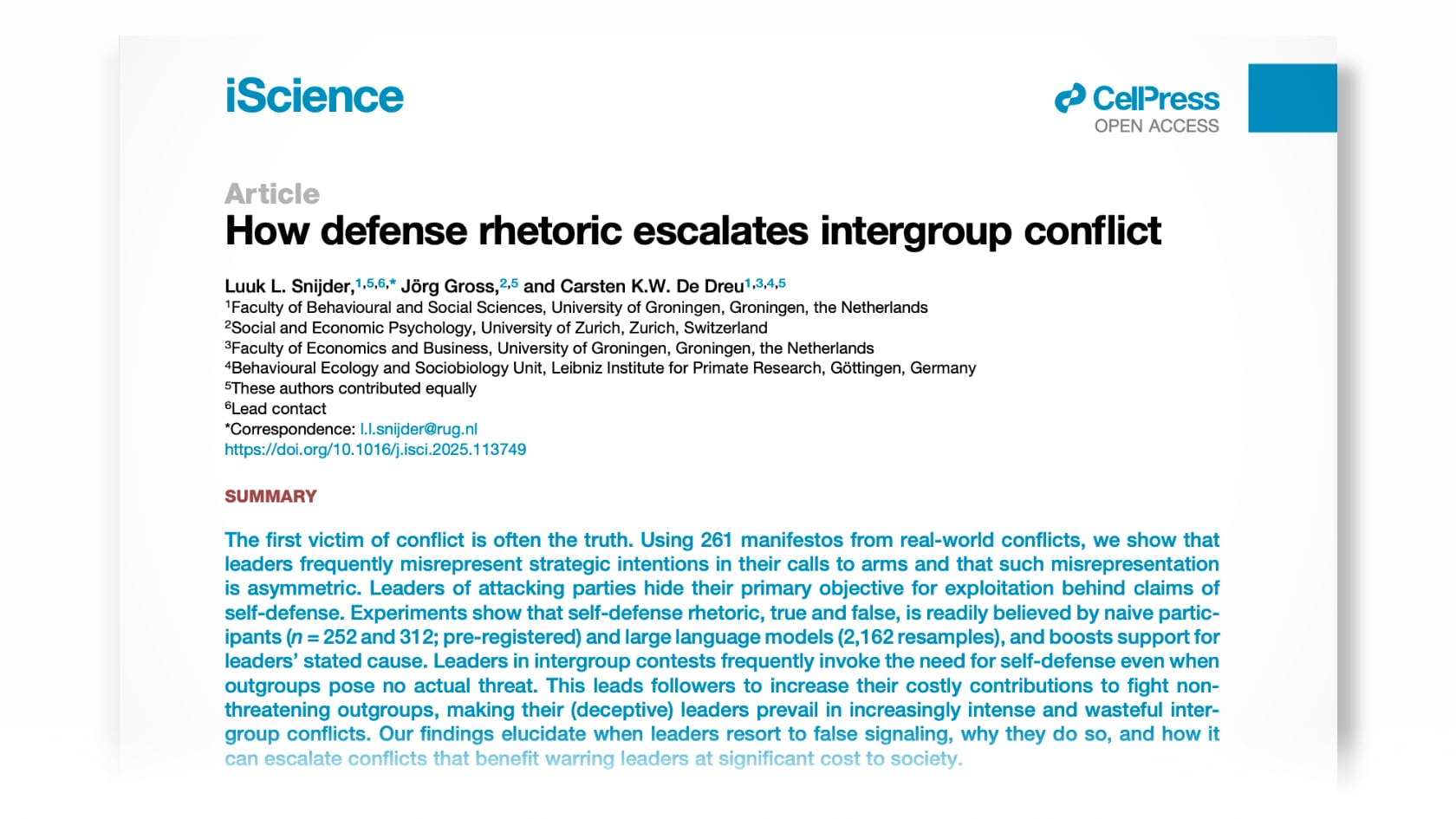New publication: "How defense rhetoric escalates intergroup conflict"
New paper published in iScience.

Abstract: The first victim of conflict is often the truth. Using 261 manifestos from real-world conflicts, we show that leaders frequently misrepresent strategic intentions in their calls to arms and that such misrepresentation is asymmetric. Leaders of attacking parties hide their primary objective for exploitation behind claims of self-defense. Experiments show that self-defense rhetoric, true and false, is readily believed by naive participants (n = 252 and 312; pre-registered) and large language models (2,162 resamples), and boosts support for leaders’ stated cause. Leaders in intergroup contests frequently invoke the need for self-defense even when outgroups pose no actual threat. This leads followers to increase their costly contributions to fight non-threatening outgroups, making their (deceptive) leaders prevail in increasingly intense and wasteful intergroup conflicts. Our findings elucidate when leaders resort to false signaling, why they do so, and how it can escalate conflicts that benefit warring leaders at significant cost to society.
Reference: Snijder, L.L., Gross, J. & De Dreu, C.K.W. (2025). How defense rhetoric escalates intergroup conflict. iScience.